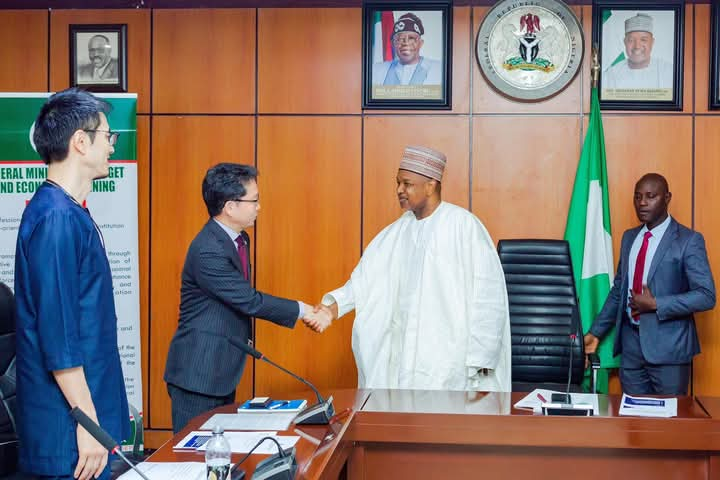The Minister of Budget and Economic Planning, Abubakar Bagudu, has revealed the federal government plans to adopt innovative public-private partnership (PPP) strategies to improve Nigeria’s transport infrastructure, particularly in the road sector.
Bagudu disclosed this during a courtesy visit by the new Japanese Ambassador to Nigeria, Hideo Suzuki, at his office in Abuja.
Bagudu emphasised that Nigeria is actively testing new approaches to road infrastructure development through strategic partnerships.
READ ALSO: Bagudu: Nigeria’s economic future brightens as fiscal, monetary policies align
He noted that sustainable collaboration is essential for long-term growth, given the country’s heavy reliance on road transportation.
The minister explained that under the Agenda 2050 Long-Term National Development Plan, Nigeria projects an annual infrastructure investment requirement of at least $100 billion to achieve its goal of a $30,000 per capita GDP by 2050.
“In line with President Bola Tinubu’s eight-point agenda, we are committed to building a $1 trillion economy within the next five years. This is an ambitious goal, and we have already achieved over 10% of this target,” Bagudu stated.

The minister underscored the importance of overcoming underinvestment in infrastructure and encouraged the Japanese International Cooperation Agency (JICA) to apply its global expertise and innovative models to Nigeria’s development needs.
He expressed gratitude for JICA’s growing involvement in various national projects, describing the Nigeria–Japan partnership as a pathway to integrating global best practices while preserving each nation’s unique identity and development goals.
Meanwhile, Suzuki highlighted the significance of the ongoing Data Collection Survey on Transport and Logistics in Nigeria.
He also mentioned that the project titled “Development of a Supportive Environment for Start-ups and Addressing Social Challenges,” signed in Abuja in April 2024, was the first of its kind from Japan and had already garnered significant interest in Tokyo due to its innovative and inclusive approach.
Suzuki further outlined other Japanese-backed initiatives in Nigeria, including the FCT Reduction of Non-Revenue Water Project, the Promotion of Market-Oriented Agricultural Extension Systems for Livelihood Improvement, and the Post-Harvest Processing and Marketing Pilot Project in Nasarawa and Niger States.
“These initiatives reflect Japan’s strong commitment to supporting Nigeria in developing inclusive systems that address real-world challenges,” he said, expressing a desire to deepen bilateral cooperation across various sectors.
Suzuki succeeds Ambassador Matsunaga Kazuyoshi, who served in Nigeria for four years.
READ ALSO: Bagudu: Economic reforms fuel growth, restore investor confidence
Also speaking, the Director overseeing the Office of the Permanent Secretary and Director of the International Cooperation Department, Samson Ebimaro, reaffirmed the ministry’s mandate to grow the economy through the creation of an enabling environment for investment and infrastructure development.
“Boosting key economic indicators requires efficient infrastructure, especially in transport,” Ebimaro said.
Nigeria’s primary exports to Japan include crude oil, petroleum products, cocoa, and cashew nuts, while Japan exports machinery, vehicles, and chemical products to Nigeria.


